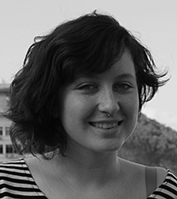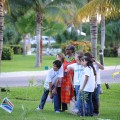Closing the Door on Women, Youth and Indigenous Peoples
Gen Stewart | June 20, 2012.
The UN Conference on Sustainable Development has had significant problems involving civil society with official proceedings.
Known as the major groups of the UN, civil society are classified into nine groups: Children & Youth, Farmers, Business & Industry, Women, NGOs, Workers & Trade Unions, Indigenous Peoples, Local Authorities and the Scientific & Technological community. They have been mandated since the 1992 Earth Summit when the UN realised that “sustainable development could not be achieved by governments alone.”
On the twentieth anniversary of the conference on sustainable development, the G77 group of developing nations are attempting to limit civil society access to the negotiations.
Traditionally marginalised groups such as youth, women and indigenous peoples are given a voice within the UN system by their major groups. The ramifications for limiting civil society participation would be felt much more significantly by these groups.
Official delegations, while more gender-diverse than the average government, are still primarily male. This means that women already have little say in the policies each government brings to negotiations. The removal of major groups would further decrease equal representation of women and their interests and needs.
Women are just over 50% of the world’s population. Denying us a voice in our future would have serious consequences for reproductive health, childcare, food production and development as a whole. Women’s empowerment has been called the single most important factor in lifting communities out of poverty.
Ceci Charles King, of the women’s major group, says that civil society need “meaningful negotiating roles” if the UN is going to be fair and representative to the people of the world.
Indigenous peoples are even less represented in politics than women, with only one indigenous person ever having been a head of state – Bolivian President Evo Morales. If we are to promote equity in development, indigenous peoples must be given a voice.
Youth are also affected by the current status of the text. Kiara Worth of the children and youth major group believes that listening to the voices of the future “can offer a unique perspective on sustainability.”
“Exclusion of major groups means the majority of the global population goes unheard,” said Ms Worth, adding that without the participation of civil society the UN will create policies which lack the perspective of those who will be affected by them.
By attempting to deny these groups a voice in future negotiations, the G77 runs afoul of the guiding principles which aims to build a sustainable future through inclusive and equitable processes. Civil society are the people for whom these policies are being created. Removing them from the decision-making process is dangerous, irresponsible and shows disregard for the very thing the UNCSD was intended to safeguard: our future.
By Genevieve Stewart, photo by Linh Do.











comment